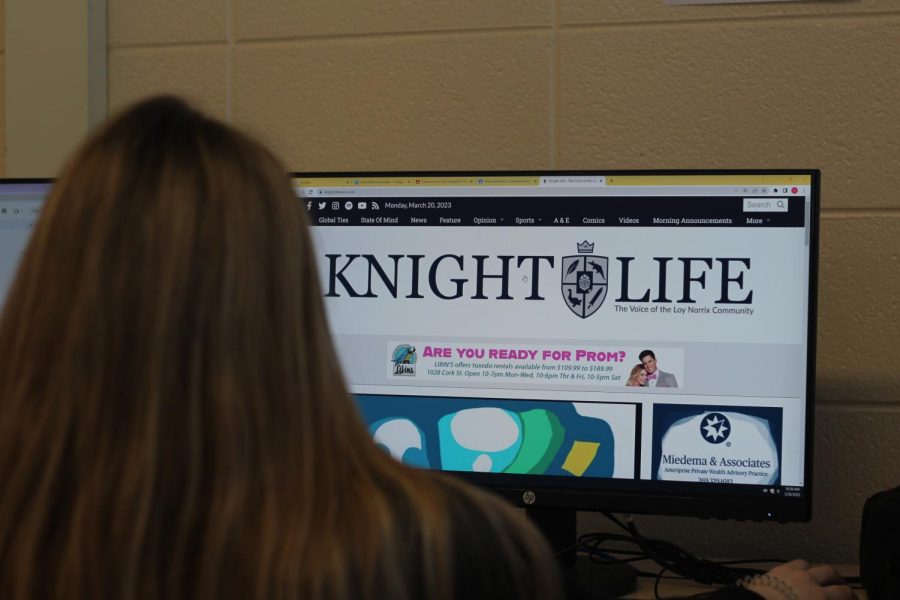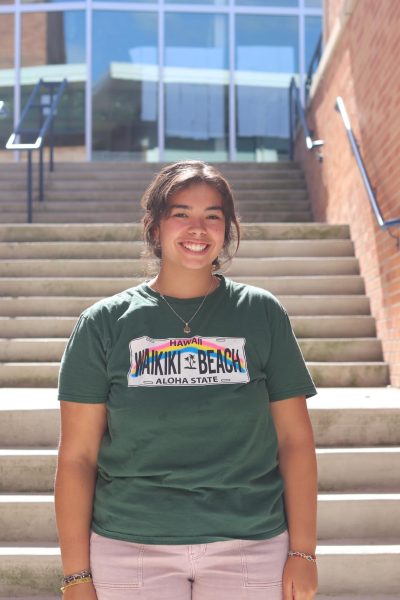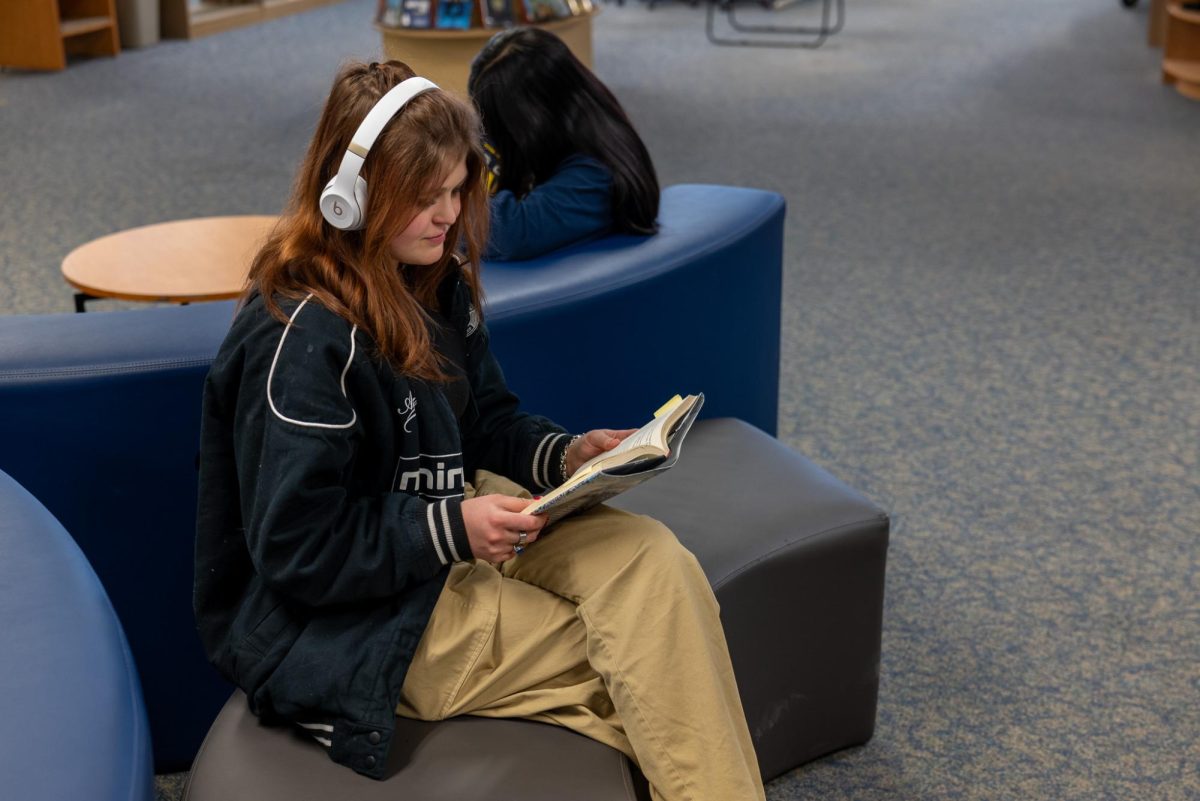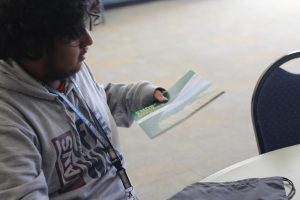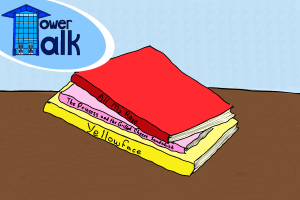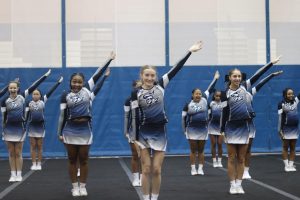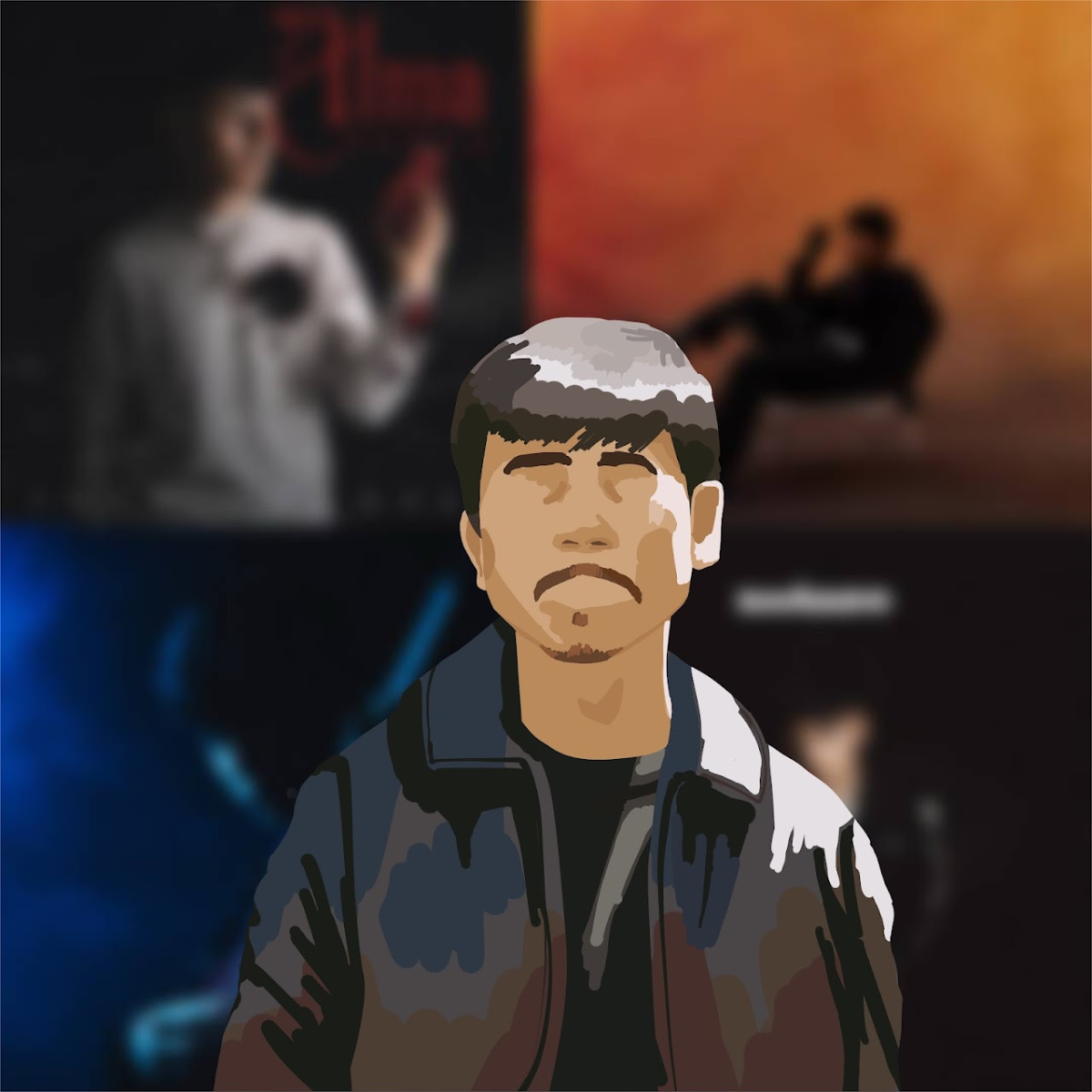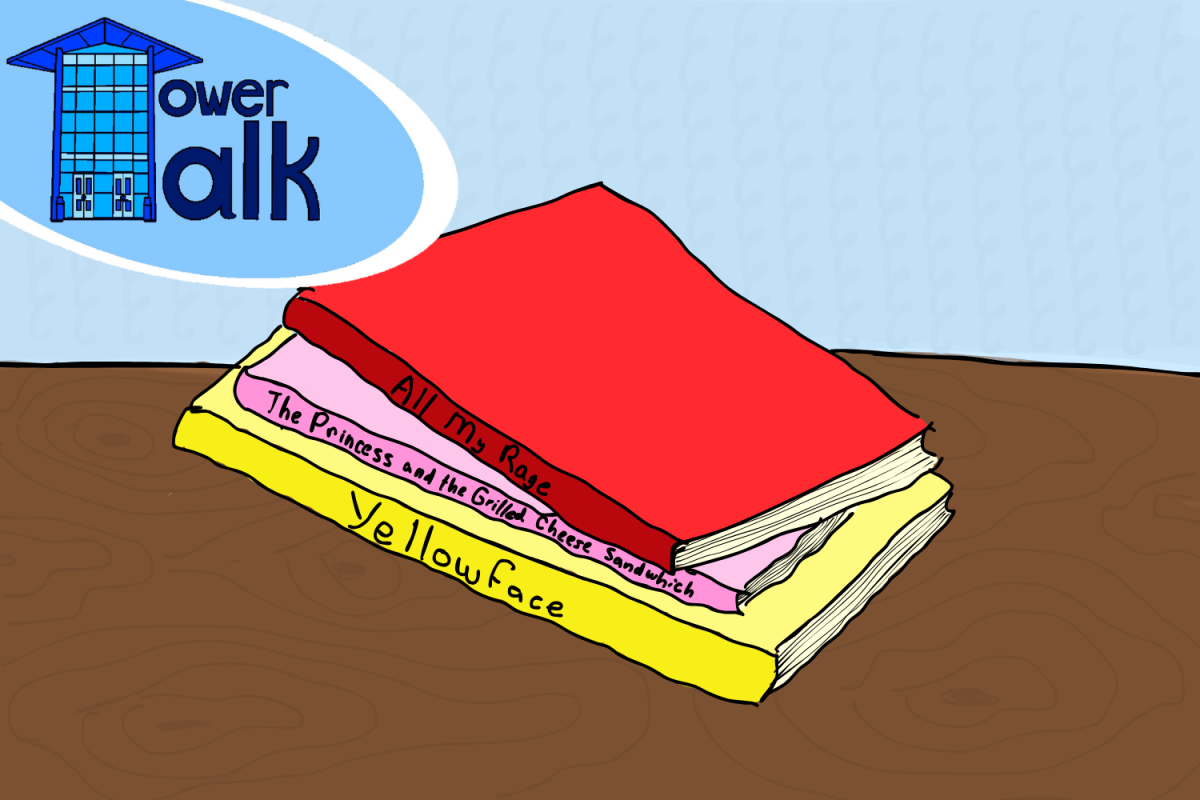Kalamazoo Public Schools requires articles to be reviewed before publishing
Sophia Ciokajlo looks at the website for the student publication ¨Knight Life.¨ ¨Knight Life¨ has been a strictly online publication since 2019.
April 10, 2023
Freedom of the press is tied to the First Amendment under the U.S. Constitution to ensure the freedom of information and ideas, thereby ensuring a strong democracy.
While most news agencies adhere to such ways, the waters can become muddied when school newspapers are involved.
Some schools have prior review systems in place with anything that is published under the school’s name. Prior review is when a student journalist’s article is previewed by a school administrator before the article can be published. Despite the practice of prior review in some school districts, there are still certain laws that protect students’ free speech rights.
Since 2002, Kalamazoo Public Schools has had a policy that specifies what content school publications may distribute. Per Section 4.07 of the Board of Education policies.
“Student publications should be based on student maturity, ability to self-adhere to appropriate standards of literacy or journalistic taste and distinguish between freedom and free license.”
This legal language comes from the Hazelwood v. Kuhlmeier Supreme Court ruling in 1988 where students lost freedom in publishing on school-sponsored platforms. Administrators can now choose to prior review stories and censor anything with a legitimate pedagogical concern or those that don’t go along with the school’s mission statement.
A Journalism II class initially filed the lawsuit claiming the principal censoring stories about teen pregnancy and divorce was a violation of their First Amendment rights.
At Norrix’s student publication “Knight Life” the goal remains to ensure the content posted meets the district standards according to Principal Christopher Aguinaga who reads all the articles to make sure they do that in a process called prior review.
Aguinaga asks himself two key questions when he first reads an article.
Aguinaga said, “Is it benefiting the student in terms of publishing, and also, is not harming the school environment?”
Aguinaga sees prior review as an opportunity to ensure that what is being published does not tarnish the image of the school and does not harm any individual students. However, under the law, students should be able to write even critical articles about the school as long as it doesn’t invade anyone’s rights, create a substantial disruption of the school day or show a legitimate educational concern.
Articles with legitimate educational concerns could be poorly researched, grammatically incorrect, unsuitable for immature audiences, or promote drug or alcohol use.
Some of these guidelines tie to the 1968 case Tinker v. De Mois where students decided they would wear a black armband to support the armistice of the Vietnam War. When the principal found out, he said they would be suspended if they showed up to school wearing the armband. The students showed up wearing the armband, and the principal suspended them.
The parents of two students sued the school district for infringing on their First Amendment rights, and the Supreme Court ruled that school officials could not impose limitations based on a suspicion that the armband might be a substantial disruption.
An example of a substantial disruption at LN would be a story prompting a planned walkout during the day. That is something that would be found out by Aguinaga through the review process.
One reason to publish student writing, even that which criticizes the school system, is that articles like these can give administrators a better understanding of potential problems in the schools, to get a look at what needs to change and what thoughts the students have on issues.
When Aguinaga has a concern with an article, he calls a meeting with the author to discuss his wariness.
“Ultimately, it is making sure that our learning environment is as positive as possible,” said Aguinaga.
If the learning environment is negative, but it is the truth, what happens then?
Hannah Locke, the Editor-in-Chief of ¨Knight Life,¨ has had no personal negative experiences with the process of prior review; however, she believes it can be negative at times when it is used to censor student speech.
“As far as I’ve been at this school, under Mr. Aguinaga, it hasn’t been negative. All of the changes that I’ve been told about or been a part of have not hindered articles in any way, and he’s never outright told us we can’t publish something, but under a different administration it can be seen differently,” said Locke.
All things considered, it makes you wonder what it would be like if prior review in KPS was used in a harmful way to censor student speech.
Elliot Russell, former Editor-In-Chief of “Knight Life” for the 2020-2021 and the 2021-2022 school year has an opinion that prior review can be more negative than Locke thinks.
Russell sees prior review as something harmful to journalism students. It can be a tedious waste of time and a method to censor student speech.
“By law, the admins. have certain rights to censor based on ‘legitimate and pedagogical concerns,’ which makes writing about topics like sex and drugs — which whether we’d like to admit it or not, are very real parts of teenage life.” Russell continued, “[It is] almost impossible to write about [these topics] because of the black-and-white nature of this sort of censorship. It usually forces the reporter to pick a new angle, or a new topic entirely, to center their story around, also forcing them to write a new story entirely.”
Russell believes that with the meetings and revisions that principals can call for, student reporters’ stories won’t have the punch that reportage on serious topics should.
Tisha Pankop has been teaching journalism and advising ¨Knight Life¨ since the 1995-96 school year.
Pankop agrees with Locke that the current principal has been generally good about letting the stories get published.
However, in past experiences she’s had, she explained that if the things that are being published seem like they make the school look bad, the principal will try to put the story on hold to slow down the process in hopes that the student may decide not to bother publishing it.
Past administrators have gotten in the way of student free speech with attempts to stop or slow down the process of an article being published.
¨They try to cut the story entirely, refuse to meet with the students about it, hope that the students forget about it and never get back with them. Two months later, we are still waiting,¨ said Pankop.
For example, in 2009, former LN principal Jonny Edwards held an opinion column story from being published that critiqued the suspension policy.
The Student Press Law Center wrote about this in the story, Mich. principal makes critical editorial and reported, “The editors submitted the article for approval last month, but were told by Edwards that ‘factual errors’ kept it from print. Once the students made the requested changes and resubmitted the story for approval, the article lingered on Edwards’ desk for nearly a month before a decision was made.”
Another story on this same incident titled, Mich. principal withholds critical editorial from student newspaper reported, “‘I feel this is censorship in the strongest way possible,’ said Renee Macdonald, co-editor of Knight Life, the student newspaper at that time.
Pankop worries that the students she teaches will self-censor and be afraid to report the truth and publish writing on topics some consider controversial. She encourages students to “Seek the truth and report it.
¨We don’t want media who are afraid to cover controversial topics, particularly when the news media is the watchdog to a potential corrupt government,¨ said Pankop.
If there is a situation in which the school newspaper is investigating a legitimate issue that the district wants to hide, what happens then?
Freedom of the Press is important to maintain the balance between those in positions of authority and educating young people to be reliable reporters of the news that citizens in a democracy depend on.


